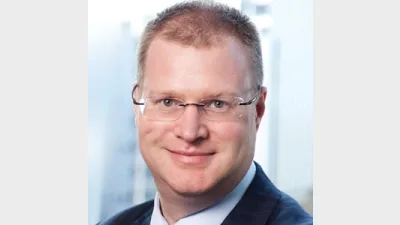Moving beyond FOFA to cure industry ills



If we are to take Queensland mining billionaire and tyro member of the House of Representatives, Clive Palmer at his word, then his Palmer United Party senators will join with the Labor Party and the Greens to disallow the Government’s regulatory changes to the Future of Financial Advice (FOFA) legislation.
But, then again, experience with respect to the repeal of the carbon tax suggests that just because Mr Palmer says something, that does not mean his position will remain immutable. He is, after all, an old-style populist politician.
Therefore, Palmer’s comments with respect to the Government’s regulatory changes to FOFA need to be viewed in the context of the issues and arguments he saw before him at the time. What he saw was a combination of the arguments being put forward by Industry Super Australia (ISA) and the continuing, overwhelmingly negative media coverage attaching to Commonwealth Financial Planning (CommFP).
It is therefore possible for the financial planning industry to persuade Palmer to adjust his position but, in doing so, it must understand that he is more likely to listen to the arguments of reputable Certified Financial Planners running their own businesses than those of the big banks.
The Palmer United Party’s attitude to the FOFA changes reflect the effectiveness of the campaign which has been waged by Industry Super Australia in defence of the existing FOFA legislation and the manner in which that has combined with events surrounding CommFP to create a perfect storm.
Taken on its own, the ISA campaign might have been rated as effective without being decisive, but in combination with the findings of the Senate Committee relating to CommFP it has brought into serious question the ability of the Government to deliver on its promises around changes to FOFA.
Ironically, there is nothing in the existing FOFA legislation which would prevent a repeat of the events which have beset CommFP or, for that matter, would have prevented Storm Financial. It follows that there is nothing in the Government’s changes which would seriously alter that analysis.
That said, there are many things in the 61 recommendations contained in the Senate Committee’s report which would go a long way towards ensuring that a repeat of events within CommFP and Storm Financial are not repeated.
That is why the call by the Financial Planning Association (FPA) for the Government to convene a national summit to discuss the Senate Committee recommendations has substantial merit as forum via which the industry can hope to identify some long-term answers which might actually succeed in ensuring events such as those which occurred with respect to Storm Financial and CommFP are not repeated.
There were those within the financial planning community who were last week strongly critical of the fact that the FPA chairman, Matthew Rowe, was robust in his condemnation of what had occurred within CommFP and that he pointed out the degree to which members employed within CommFP had been over-represented in terms of action undertaken by ASIC.
Included in those criticising the FPA’s approach was the Association of Independently Owned Financial Professionals with its chief executive, Peter Johnston, suggesting the FPA was guilty of denigrating the industry.
It says something about the FPA’s positioning with respect to FOFA and the recommendations contained in the Senate Committee report that it was not backing down on the views expressed by Rowe.
The message delivered by Rowe might have been harsh, but it succeeded in sending a signal that his organisation was not going to be in the business of trying to defend the indefensible or excuse the inexcusable.
Recommended for you
In this episode of Relative Return Insider, host Keith Ford and AMP chief economist Shane Oliver discuss the latest shock consumer price index numbers, which rose to 3.8 per cent in October, as well as the shifting US market and calls for super funds to invest in infrastructure projects.
In this episode of Relative Return Insider, host Keith Ford and AMP chief economist Shane Oliver discuss the Reserve Bank of Australia’s cautious stance in response to persistent inflation, subdued growth prospects, and political shifts affecting the nation’s journey towards net zero emissions.
In this episode of Relative Return, host Laura Dew speaks with Rachel White, head of financial adviser services at Vanguard about how advisers can help Australians to feel confident in retirement.
In this episode of Relative Return Insider, host Keith Ford and AMP deputy chief economist Diana Mousina take a look at the Reserve Bank’s unanimous decision to leave rates on hold on Melbourne Cup Day and whether future cuts are still on the cards.








